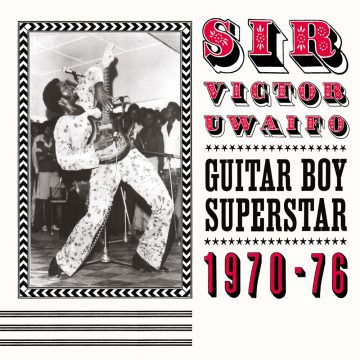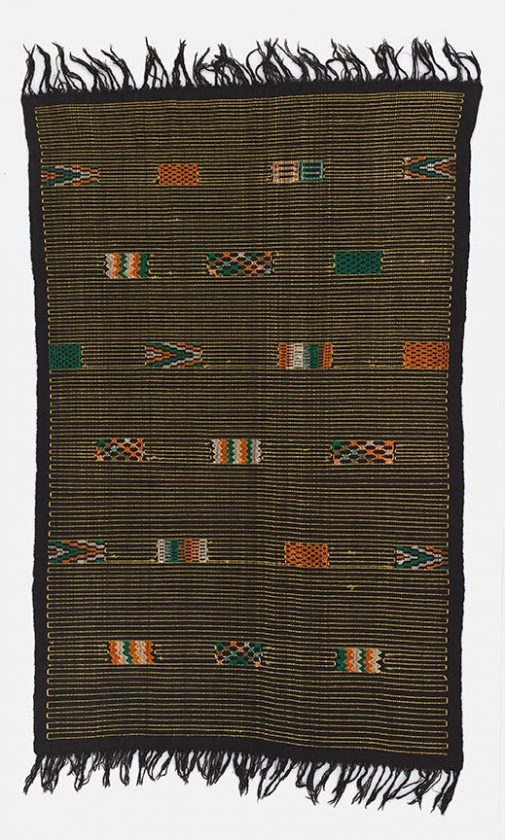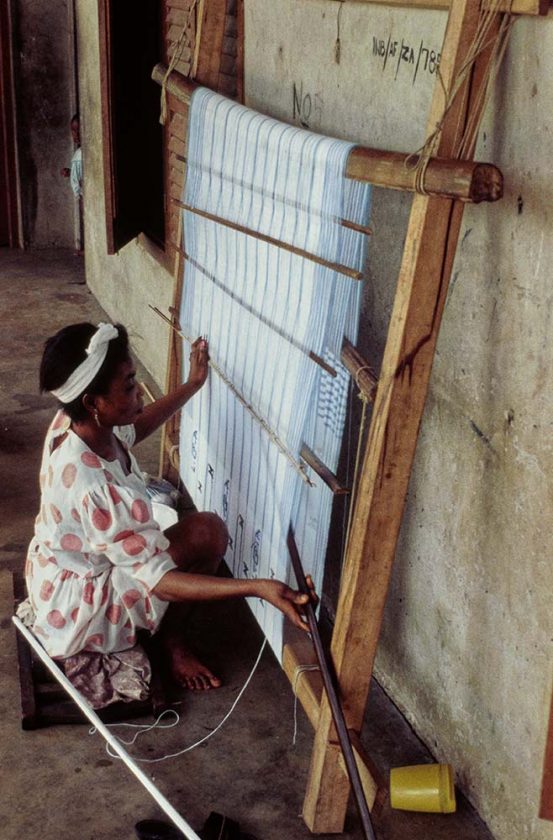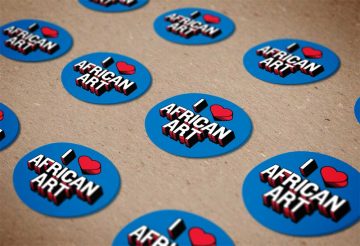

Soundway Records Ltd., 2008
Artwork: Tim Moore
© Soundway Records Ltd.
If you remember “Joromi,” a popular Edo highlife tune from the 1960s, then you might be familiar with Victor Uwaifo (1941–2021), the original Guitar Boy. He and his band, the Melody Maestros, released 100 singles and eight LPs on the Phonogram label,1 between 1965 and 1976. Among them was Uwaifo’s Ekassa series, which he described as “progressive traditionalism”2 and included the song “Kirikisi (Ekassa 24)” as part of Uwaifo’s reinvention of new forms of music based on traditional sounds and rhythms. With his Akwete sound, Uwaifo transposed the colors and patterns of a traditional Igbo handwoven textile into sounds, creating a “moving rhythm of color.”3
Ekassa is a traditional dance performed during the coronation of a new oba (king), but Uwaifo’s version, in his own words, “incorporates the beat of the tom-tom and agba drums, Western wind instruments, two guitars and, of course, me on the guitar singing in the Edo language.”4 “Ekassa 24” expressed a time of creativity and optimism for the people of Nigeria during the early years of independence. Like Akwete, the melody and lyrics weave together the past, present, and future in ways that speak to Alonge’s aspirational portraits of an Edo community grounded in their past but looking toward their future.
Endnotes
1. Collins, John. 1985. Musicmakers of West Africa. Washington, D.C.: Three Continents Press, 74.
2. Interview with Victor Uwaifo. https://afropop.org/articles/uwaifo. See also Austin Emielu. 2018. “Tradition, Innovations, and Modernity in the Music of the Edo of Nigeria: Toward a Theory of Progressive Traditionalism.” Ethnomusicology 62 (2).
3. Collins 1985, 78.
4. Ibid, 78–79.

Akwete, Nigeria
Akwete wrapper
1964
Cotton, synthetic fiber
187.6 x 105.7cm (73 7/8 x 41 4/8 in.)
Gift of Linda Millette, 2010-7-1
Photograph by Franko Khoury
Akwete is a sustainable and wearable fabric adopted across the African continent. With its playful colors, durability, and traditional designs and motifs, it has become the inspiration for global fashion featured in trendy design studios today. The women-owned cooperatives in Akwete have enhanced female autonomy, creativity, and empowerment.
Handwoven on upright looms by Igbo women in Akwete, Nigeria, wrappers of sisal, hemp, raffia, cotton, and synthetic fibers consist of distinctively wide strips that bear geometric patterns or individual decorative motifs that reflect social status, royalty, or family and can serve as talismans for protection in pregnancy and childbirth. Here, yellow, white, blue-green, and red-orange synthetic fibers float across the black cotton warp producing striped, chevron, and checkerboard patterns.

Afikpo village-group, Nigeria
Traditionally restricted to the southern Igbo women in the Akwete area, Akwete weaving has now spread among Igbo to Afikpo in southeastern Nigeria.
Photograph by Simon Ottenberg, 1992
Simon Ottenberg Collection
EEPA 2005-001-3741
